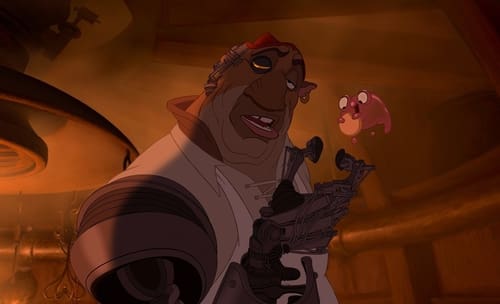
The Stranger
Released: 1946-07-02
An investigator from the War Crimes Commission travels to Connecticut to find an infamous Nazi, who may be hiding out in a small town in the guise of a distinguished professor engaged to the Supreme Court Justice’s daughter.
Thriller
Crime
7.2 / 576
Duration: 95 min.
Budget: $1.0M
Revenue: $3.2M
Trailer
Gallery
Reviews
TheCakerBaker
Rating:7.5/10
Excellent cinematography and camerawork as can be expected from Welles. Entertaining throughout. Watch if you're a fan of film noir

John Chard
Rating:9/10
They searched the woods. I watched them, here, like God looking at little ants. We are in the college town of Harper, Connecticut, one day a man known only as Wilson arrives, he's a member of the War Crimes Commission, in short he's a Nazi Hunter. On his radar is the man thought to have invented the Nazi Death Camps, Franz Kindler, surely such a despicable and low human being is not residing in this lovely little place? The Stranger finds director (and star) Orson Welles fusing two rather interesting facts, fact one is that this picture, coming at a time when Welles was really struggling as a viable artist, is one of his most conventional pictures, fact two is that it's also one of his finest achievements. All Welles' traits are here, the expert use of shadows and lights, tricksy camera angles, buildings carrying auras. A clock tower at the centre of the piece is a foreboding character all by itself, listen out for the clock tower dongs and I swear to you they sound like a death knell beckoning us in to its belly, this is Welles crafting wonderful atmospherics to enhance the mood in this small and picturesque town. Yet it's probably with his acting performance that he achieves the best rewards, it's made clear to the viewers from the off that Welles is the villain of the piece, it's not in question, the issue is if he can avoid and escape the clutches of Edward G Robinson's determined Wilson?. Here Welles excels because this is no cartoon cut out Nazi portrayal, this is cold and calculating stuff, cynical with devilment seeping from his pores, he arrogantly believes that he is just and correct at every turn. Loretta Young (Mary Longstreet) plays off of Welles very well, on the surface it looked like she wasn't being asked to be anything more than a foolish love interest, but as the last quarter arrives she gets some meat to chew on and aided by Robinson in perfectly restrained form, gives us a finale that in true Welles tradition is as memorable as it is unfeasibly gorgeous. It's a fitting end to a truly great picture, highly recommended viewing, tight, tense and terrific. 9/10
Hover to reveal

CinemaSerf
Rating:7/10
This taut and suspenseful thriller finds a devilishly clever Edward G. Robinson ("Mr. Wilson") on the trail of the Nazi who allegedly devised the whole concept of mass annihilation in the concentration camps. Having released one of his erstwhile minions "Meinike", he hopes that he will lead to him the big fish. Well he does, sort of - but suddenly disappears in a small town leaving "Wilson" with little to go on but his target's infatuation with all things horological. Enter a typical, recently married, couple - the "Rankins" (Orson Welles & Loretta Young) on the surface, a perfectly average pair but one whom "Wilson" suspects has a sinister past and so he sets out to prove this. Welles is not great here, but workmanlike with this acting performance (he directed this too); Young a little too over-the top an times, but the last 20 minutes are gripping and psychologically charged - there is a palpable feeling of evil and menace as "Wilson" cleverly manipulates the situation to try to reel in his catch. Welles fares better with the direction - he builds a tension that, even though we know fairly early on who is whom - keeps us interested right til the end.
Hover to reveal

r96sk
Rating:7/10
A good movie, albeit one that finishes weaker than it started. I really enjoyed the set up of 'The Stranger', though once the cat is let out the bag events do move along at a notch below. The final 30 feels a little drawn out, admittedly only in a relative sense because it is still perfectly watchable - but I personally wasn't as interested as I was across the opening chunk. There is a commanding showing from Edward G. Robinson, the best of those onscreen for my money. Orson Welles is good too, particularly visually. Loretta Young has a couple of impressive moments in there too, even if her character is quite baffling at times. Billy House stands out in my memory from this too. Taking everything into consideration, this 1946 picture is one I'd recommend; even if my feelings post-watch are of wanting more from it.